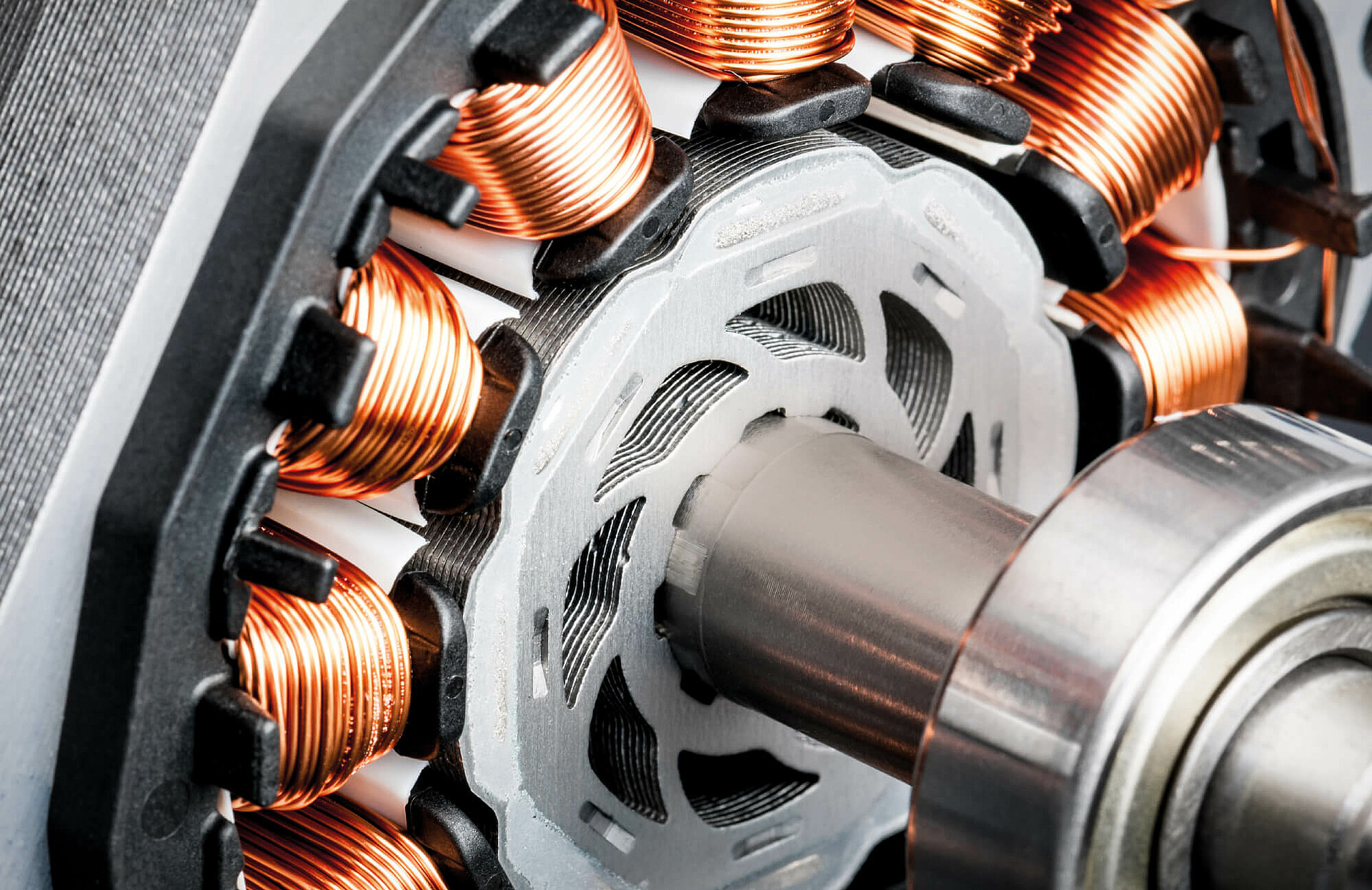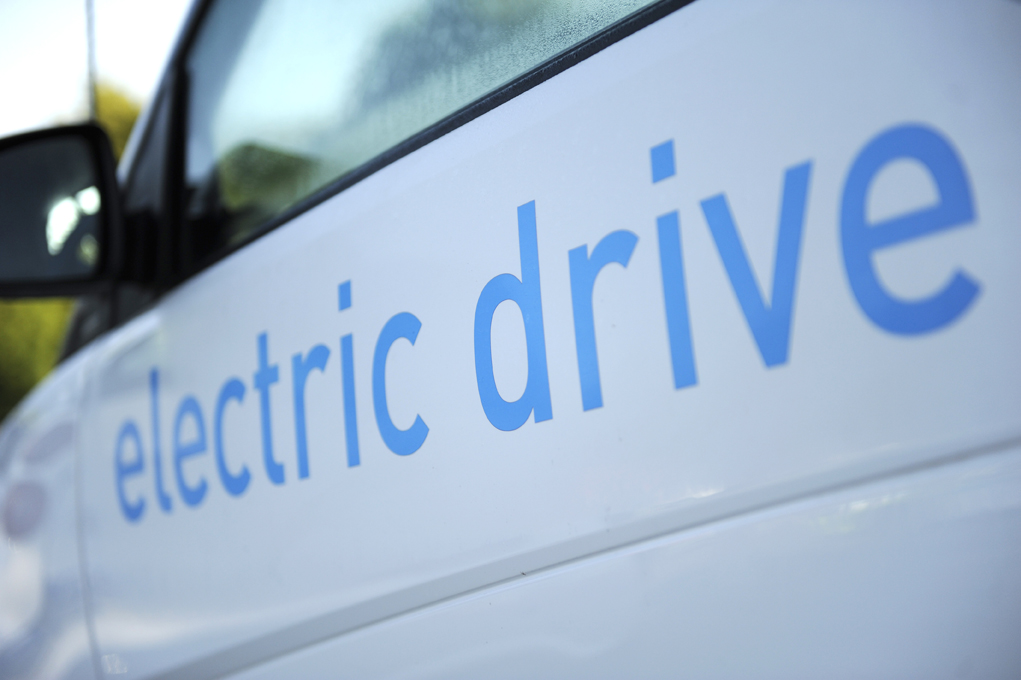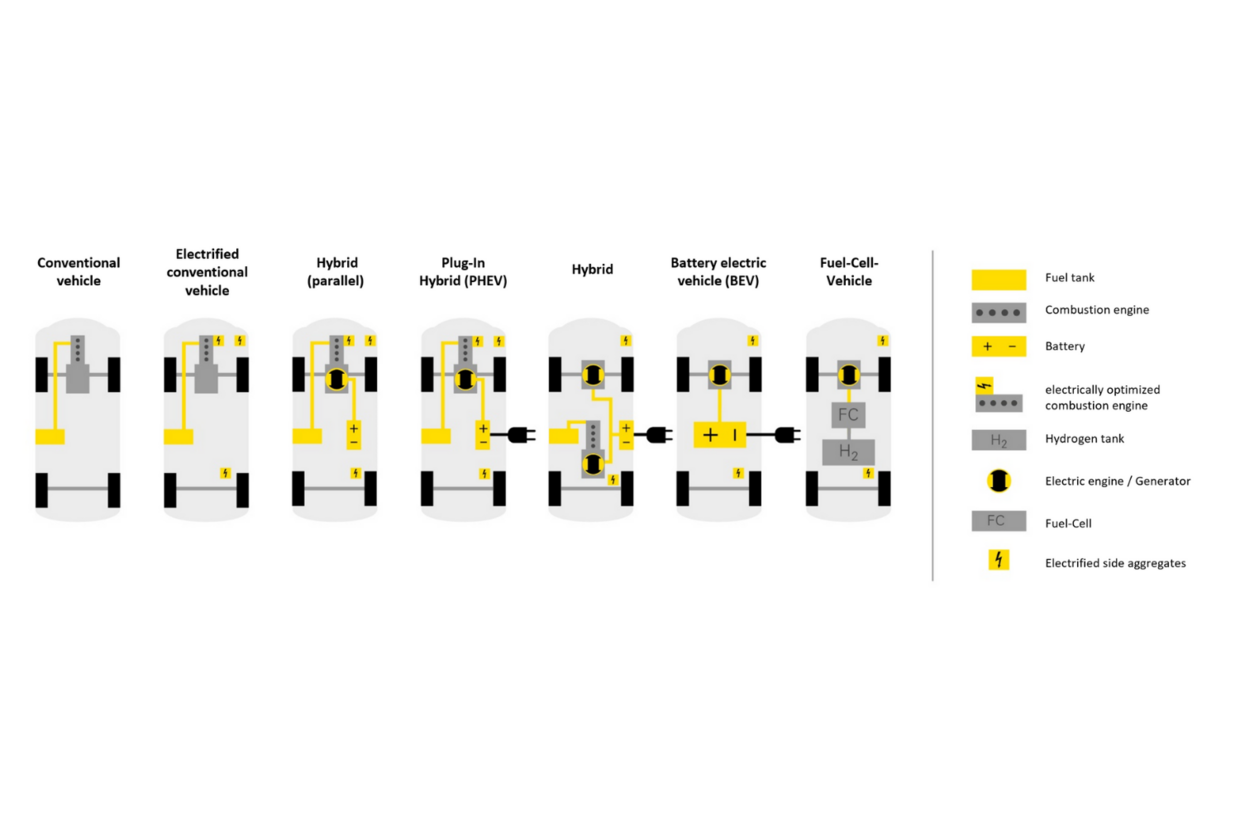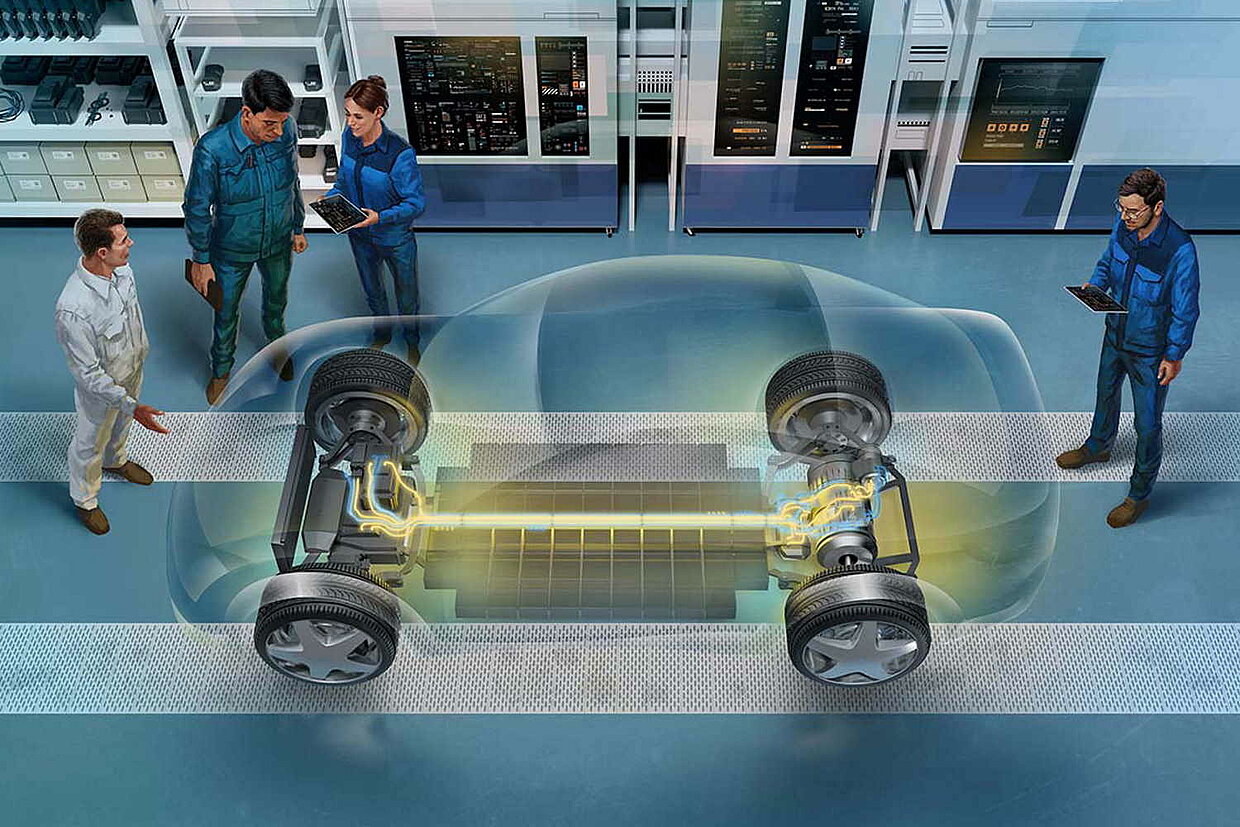
Electric mobility is a megatrend that will, together with connected vehicles, autonomous driving and digitalised production, significantly change the automobile itself, its use and the way it is manufactured in the years to come. Electric mobility is also a key factor for achieving climate targets. The State Agency for New Mobility Solutions and Automotive, e-mobil BW, supports the advancement of this technology via the Cluster Electric Mobility South-West.

The transformation to electric mobility implies a fundamental change of the transport system, for the economy and for society. Electrified powertrains, in particular, affect the existing value-creation and employment structures of the automotive industry.
In Baden-Württemberg, the automotive cluster provides jobs for approximately 470,000 persons, which represents 11% of all employees subject to social insurance contributions. For more details, please refer to the following study: Strukturstudie BWe mobil 2019.
As State Agency for New Mobility Solutions and Automotive, e-mobil BW covers the entire system of electric mobility. Battery-electric and fuel-cell electric vehicles are key solutions for making climate-friendly mobility a reality. Following this holistic strategy, e-mobil BW has set up the Cluster Electric Mobility South-West to contribute to the successful market launch of electric mobility and to support Baden-Württemberg in holding its own against global competition. Efforts are particularly focused on the industrialisation of electric mobility in order to position Baden-Württemberg as a leading provider of sustainable and smart mobility solutions.
As an important independent centre of competence at regional and federal level, e-mobil BW is driving forward the development of various technologies and measures at a rapid pace of innovation. Whereas battery-electric vehicles lend themselves especially well to short-distance driving and for passenger cars, it is mostly long-distance usage and applications with high power demand, such as commercial vehicles, where fuel cell drives can be the technology of choice.

Electric mobility stands for a multitude of vehicle concepts, from bicycle and micro and light vehicles to passenger cars and trucks and buses. The chart shows the multitude of electric drive concepts compared to conventional drives. Battery-electric and fuel-cell electric vehicles are important options for climate-friendly mobility. However, from an environmental point of view, electric mobility only makes sense if energy is generated from renewable resources, and if coupling of the transport and power generation sectors is improved. Value creation structures and upstream material chains are facing change as well; a challenge for long-established companies, and also a great opportunity to simultaneously improve the quality of the environment and the quality of living worldwide. To push electric mobility forward, it is also essential to examine and address socio-political and legal issues as well as the framework conditions.
A key element in the value creation of the automotive industry is the powertrain. Due to electrification, cost pressure and new market players, especially small and medium-sized enterprises are facing with major challenges.
Therefore, the project of the transformation hub “Scale-up E-Drive” was initiated and funded by the Federal Ministry of Economics and Climate Protection. Under consortium leadership of the e-mobil BW GmbH the hub is intended to support SMEs in the transformation processes towards the electric vehicle powertrain and thus contribute to maintaining value creation and employment in Germany as a business location.


According to an analysis by the Center for Solar Energy and Hydrogen Research Baden-Württemberg (ZSW), the number of electric vehicles (including plug-in hybrids and vehicles with range extenders) worldwide has risen to 5.6 million at the beginning of 2019, which represents an increase of 64% on the previous year.
This dynamic growth is mostly due to the number of newly registered vehicles worldwide amounting to 2.2 million in 2018, or an increase of 75% compared to the year before.
China, with a fleet of 2.6 million electric vehicles, and the US, with 1.1 million electric vehicles, are the strongest markets. Norway still holds its position as the country with the highest rate of electric-vehicle registrations. By comparison, Germany, meanwhile, maintains the highest number of registered electric vehicles in absolute figures.